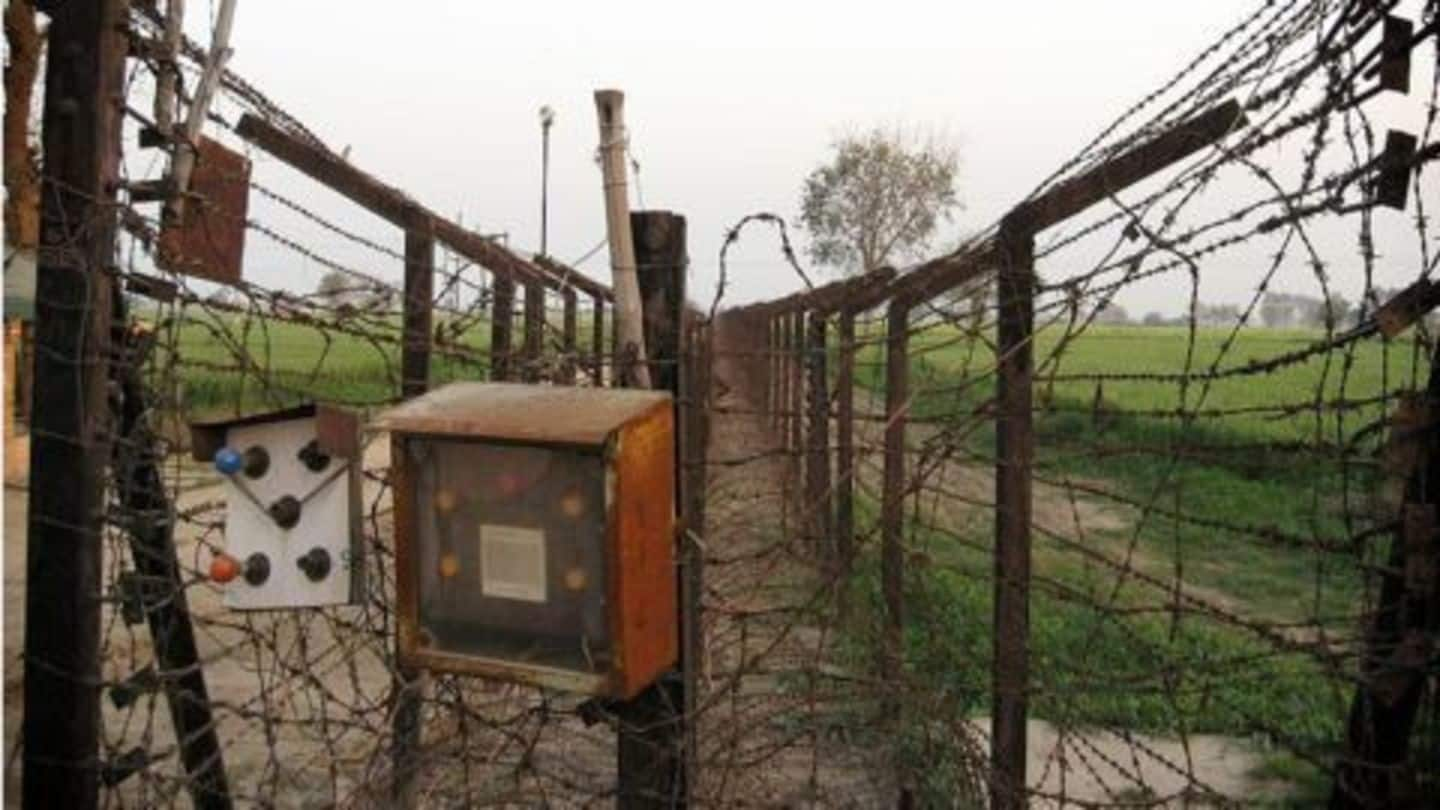
BSF to seal vulnerable points along Indo-Pak border
What's the story
The Centre directed the Border Security Force (BSF) to establish a real-time intelligence sharing grid and completely seal all the vulnerable frontiers along the India-Pakistan Border. Home Minister Rajnath Singh issued the directive at a meeting as infiltration from Pakistan has been increasing. The meeting was attended by senior officials of the BSF, which guards India's borders with Pakistan and Bangladesh, and Home Ministry.
Introduction
About the India-Pakistan border
The India-Pakistan Border separates four Indian states and four Pakistani provinces. Of the 3,323 km-long border, 1,225 km (including the Line of Control) fall in J&K, 553 km in Punjab, 1,037 km in Rajasthan, and 508 km in Gujarat. Infiltration from Pakistan has long been a security concern for India; several terror attacks in India are believed to be carried out by infiltrators.
2015-16
Six terror attacks in two years
2015: Terrorists attacked a police station in Jammu and Kashmir; three gunmen dressed in Indian Army uniforms attacked a bus and a police station in Punjab's Gurdaspur. Jan'16: Heavily-armed terrorists attacked the Pathankot Air Force Station. Jun'16: Lashkar-e-Taiba terrorists attacked the CRPF near Pampore in Jammu and Kashmir. Sep'16: Four heavily-armed terrorists attacked the Indian Army's administrative base in Uri and killed 17 soldiers.
Information
Steps taken by India after Pathnkot attack
In Apr'16, The Border Security Force activated laser walls along the India-Pakistan border in Punjab to closely monitor the highly-sensitive, infiltration-prone frontier. In the same month, the Centre approved a five-layer elaborate plan to stop infiltration and totally lock the border through sophisticated technology.
High-level Meeting
Effectively controlling infiltration
The overall functioning of the BSF was reviewed during the meeting apart from lapses and gaps in border guarding. Rajnath Singh expressed concern over the increasing infiltration across the Indo-Pakistan Border and Line of Control. The BSF was instructed to establish a real-time intelligence sharing grid while state police forces to promptly act on the information collected by the BSF to effectively control infiltration.
Information
Zero infiltration
Rajnath Singh reportedly conveyed to BSF that "despite difficulties, they have to perform and must ensure that there is zero infiltration" along the border. He approved the long-pending paramilitary force's demand to issue 'Battle Casualty' certificate to those who died in the line of duty.
Committee
Ways to boost security along the Indo-Pak border
A high-powered committee led by former Union Home Secretary Madhukar Gupta indicated gaps in fencings and vulnerability on the border. The committee suggested vigil should be strengthened and technology used on riverine frontiers. It also suggested installation of electronic sensors, putting up fences, underground sensors in infiltration-prone regions, foliage-penetrating radars in forests, etc. The committee was constituted three months after the deadly Pathankot strike.
Information
Indo-Bangladesh border
Home Minister Rajnath Singh, referring to the 4,096 km-long Indo-Bangladesh border, asked BSF to ensure the smuggling of narcotics and cattle is stopped. He advised better coordination of the BSF with state police forces.